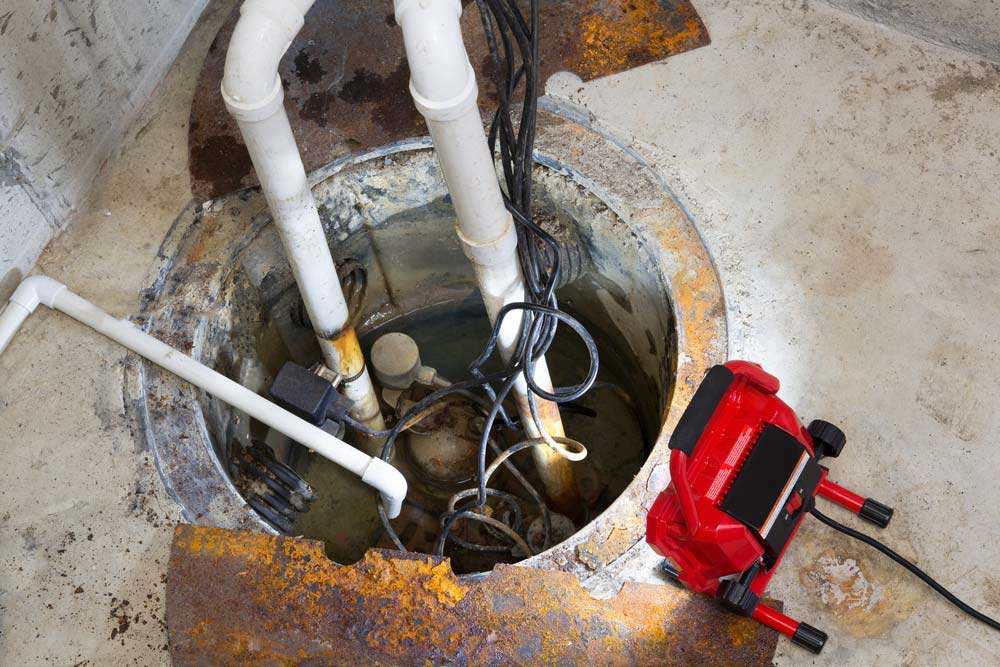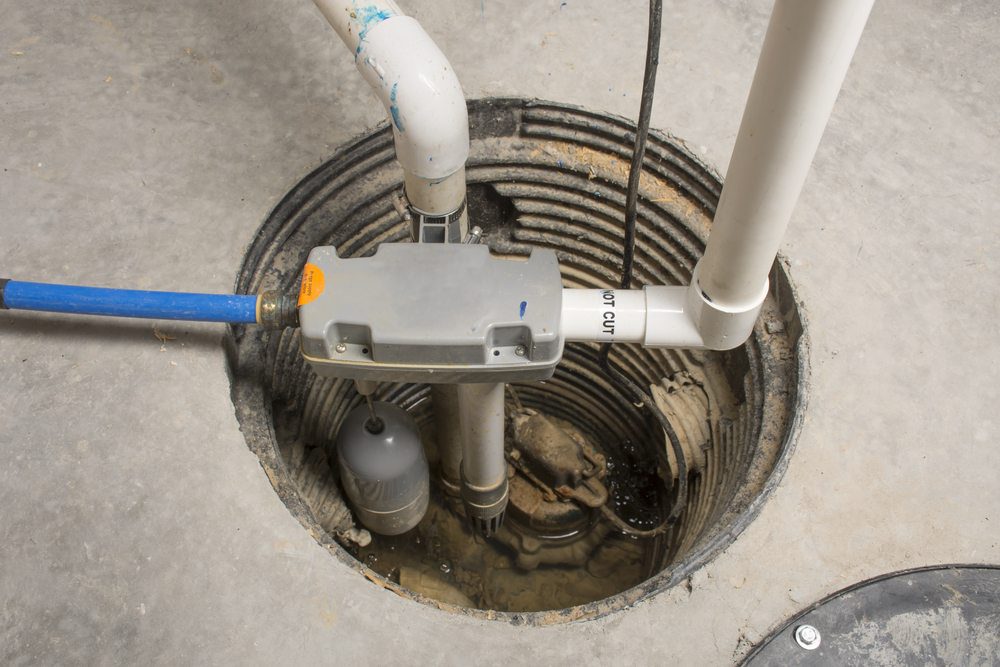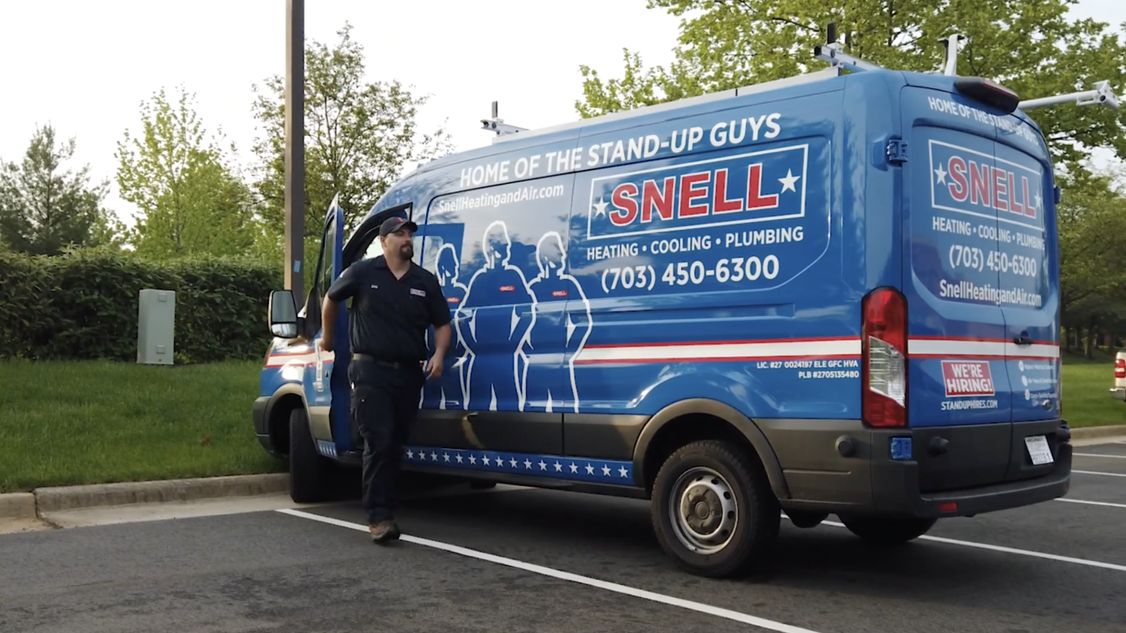
Sump pumps protect basements from flooding and water damage. When it rains, snows, or ice melts, water absorbs into the ground. Unfortunately, some of this water seeps under your home’s foundation. A sump basin, sump pump, and discharge pipes work together to remove this excess water.
The water collects in the sump basin, and when the sump basin fills up, the sump pump sucks up the water and pushes it through the discharge pipe away from your home. If you have a basement in your home, you should have a sump pump. Is your sump pump making noise? Check out these five common reasons why this might be happening.
Why Is My Sump Pump Producing Strange Sounds?
1. Humming Noises
If your sump pump is making a humming noise but is not pumping water correctly, you should do a maintenance check to see what might be causing the issue.
How do you stop your sump pump from humming? The source of the humming sounds may be a clogged vent, stuck check valve, frozen discharge pipes, or a broken impeller. If you notice a humming noise, do a quick maintenance check of your sump pump.
2. Grinding Sounds
If your sump pump makes a grinding noise, check it as soon as possible. The culprit might be a jammed or defective impeller. The impeller carries water into the sump pump. If this part is damaged, it needs immediate attention to prevent leaks or flooding. If the impeller is jammed, clear the jam. If the impeller is defective, replace it with a new one.
3. Banging Noises
Loose discharge pipes might be the reason why your sump pump is making a banging noise. The discharge pipe is the component that removes water from the sump basin. If this piece doesn’t function properly, it could lead to flooding.
You may be able to resolve the issue by securing the loose pipes with wire. In addition, you will want to consider adding an extra bracket where the noise originated. If you need help fixing a sump pump that is making a banging noise, call a professional to perform a maintenance check.
4. Gurgling Sounds
Are you wondering why your sump pump is making a slurping or gurgling sound? A gurgling noise coming from your sump pump indicates that water is flowing back through the discharge pipe. Here are some ways to fix this problem:
- Replace the check valve with a quieter version
- Modify the pump basin’s automatic turnoff level
Call a plumbing expert with any questions or concerns.
Read More: 6 Signs You Need to Replace a Bathroom Sink
5. Clanging Noises
A clanging noise coming from your sump pump means that one or more parts are vibrating vigorously. Here are some quick fixes for this problem:
- Insulate the piping
- Put rubber grommets below the lid
- Fix the position of the discharge pipes
The first two solutions are easy to implement at home, but the third solution might warrant the help of a professional.

Types of Primary Sump Pumps
Finding the right primary sump pump for your home’s needs is crucial to prevent flooding. Here are the two kinds of primary sump pumps:
Pedestal Sump Pumps
Pedestal sump pumps are tall and skinny. This type of pump sits on dry ground and is designed to pump water from narrow or shallow sump basins.
Pedestal sump pumps last longer than submersible sump pumps because they don’t incur water damage. Advantages of installing a pedestal pump include compact size, minimal deterioration, and longer life cycles. In addition, a large number of homeowners choose to invest in pedestal sump pumps because they are cheaper than submersible pumps.
Submersible Sump Pumps
Submersible sump pumps are short and fat. They submerge in the water of your sump basin and operate underwater. If your sump basin is deep and wide, a submersible sump pump is the better option for your home.
Read More: How Often Will a Furnace Perform Heating Cycles in the Winter?
Benefits of Submersible Pumps
- Low noise level
- Water cools the motor to prevent overheating and malfunctioning
- Stronger than pedestal pumps
- Removes solids and debris
- Stronger horsepower
- Faster pump rate
7 Annual Sump Pump Maintenance Tasks
These seven maintenance tasks for sump pumps can help prevent strange noises and issues. If you feel comfortable performing them yourself, go for it. If you’d rather have an HVAC expert handle things, give a licensed technician a call.
- Remove the pump and inspect for rust or corrosion
- Clean the pump’s inlet screen
- Apply lubricant to the pump bearings if specified in the owner’s manual
- Remove any debris from the sump basin
- Plug the pump back in and reconnect to an outlet
- Add water to the sump basin and ensure proper float switch function
- Inspect the discharge pipe
Sump Pump Repair & Replacement Services
If your sump pump makes noises, give our team a call to receive support. Our licensed plumbers in Centreville, VA and other areas offer sump pump repair and replacement services. We give our customers confidence that their sump pumps will work properly to protect their homes from flooding.
Our team of emergency plumbers also offer other types of plumbing services such as sink installation, gas line replacement, water heater repair, drain cleaning, and sewer line installation. Give our team of technicians a call by phone at (703) 543-9649 to receive support with a defective sump pump.
Read More: 6 Top Indicators Of a Malfunctioning Furnace Flame Sensor


